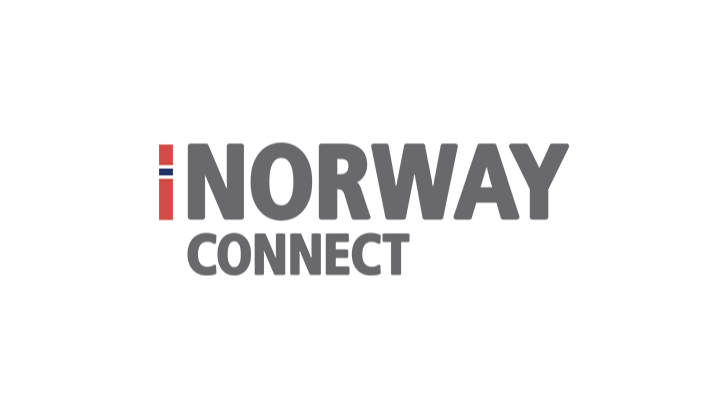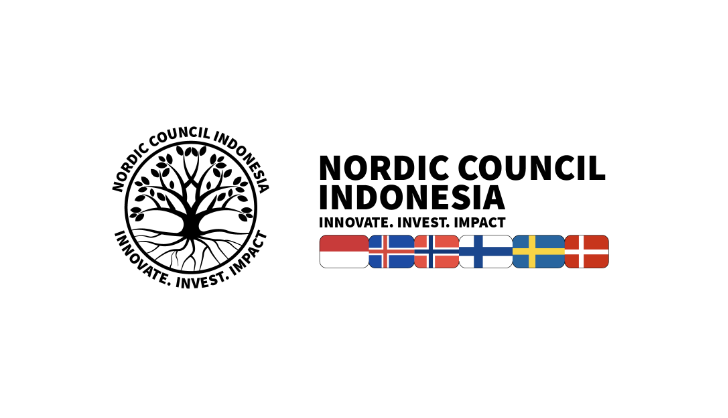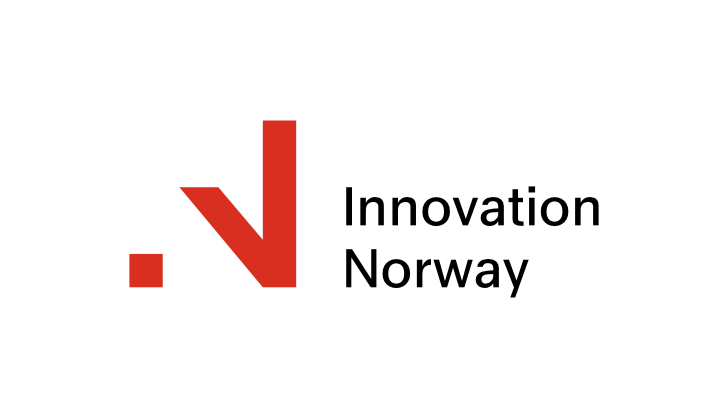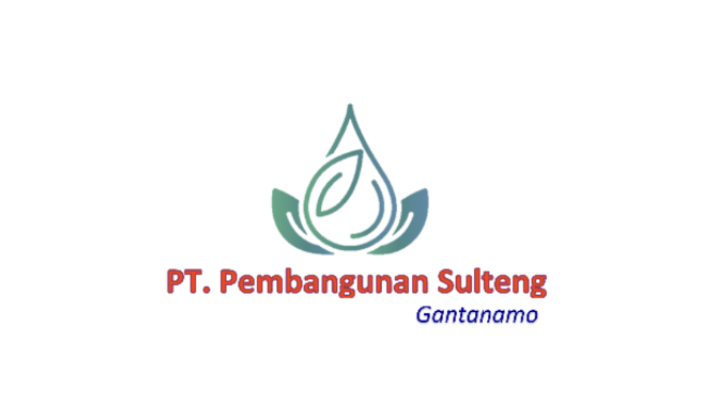
INTRODUCTION: MUSIC + SNIPPET OF EPISODE
Whereas this Investment Roadmap idea we kind of look at it all, the much bigger picture and then figure it out that way. It reminds me of writing books, I know that you write books too. But when you write a plot of a book you usually start at the end and then you work backwards and because of that you’ve always got the end in mind and you always keep referring to the end and you know where you’re going so the idea of the Investment Roadmap for me is like that.
It literally is a map. First we do this because we want to do that, then we move to this and we can’t do this because of this and all these things get answered.
INTRODUCTION: MUSIC
Achintya Nilsen Hi everyone and welcome to another episode of the Seven Stones podcast. We like to cover a broad range of topics including business, real estate, legal advice, people of Indonesia and many more. In this episode we’re going to be getting into a topic we mention a lot on our blogs and videos and general conversations we have with all our partners, which is Investment Roadmaps.
What is it? What does it consist of? And all the other questions regarding the subject.
We’re going to be getting into the details today with some fellow experts with me here in the studio, you’ve met them briefly in the first couple episodes welcome again Terje and Andy.
How are you both today?
Andy Barski Hi, very good thank you, how are you?
Achintya Nilsen I’m good thank you.
Terje Nilsen Yeah, excellent excellent, thank you.
Achintya Nilsen How have you been keeping busy since the last time we spent recording?
Terje Nilsen Yeah we’re actually very busy. Time, yeah, no it’s surprisingly busy. We’re in the middle of COVID-19 and a pandemic, but business is really picking up and a lot of people are looking positively forward to better times yeah.
Achintya Nilsen Sounds good haha. Exciting stuff?
Andy Barski Some of it is. Not all of it. But some of it is.
Terje Nilsen Some of it is yeah, I think it’s exciting, I think a lot of people realise that they have to do what we’re talking about, roadmaps. I think there’s a lot of investors, both a mixture of new and sort of established investors that see opportunities in the mess that we’re in with this pandemic, but at the end of it something better will come out of it. I think we see a lot of interest from people who want to actually move here, establish themselves here and that also relates back to the topic that we’re talking about today.
Achintya Nilsen Which is… Investment Roadmaps.
So the most obvious question is, what is it?
Andy Barski I’m gonna let you answer that. It actually came out of one of the things you were driving about a year ago isn’t it?
Terje Nilsen I think it started off like, investments in particular in Bali, but also other parts, Lombok, Flores and so on has been very notorious to kind of find a piece of land, build a villa then start a business without doing any checks. Is it a, you know, properly zoned area, you know all kinds of aspects that keeps coming back on this.
So we started doing some presentations on different investment opportunities and that kind of dealt with, “Are you here to retire?”, “Are you here to run a business?”, “Are you here short term, long term?”, “What’s your exit plan if any?” and so on.
And in the end I think we sort of concluded that in towards what we call Investment Roadmaps.
So we believe in helping people to crystallize and clarify what they’re really aiming to do. Because then the whole aspect of how they want to set themselves up, is it better for them to invest into a local company, do they set up their own or do they do an individual investment, types of visas so on, and all these things connect into what they’re actually trying to achieve.
Achintya Nilsen Nice. So basically you’ll be addressing some challenges that most business start ups face, which is that they have, for example, a property but they don’t know the correct licensing or the permits and they have to go to multiple different companies almost to…
Terje Nilsen I think one of the best sort of studies, or cases, or samples we can look into is actually where we are right now like in Canggu. So if you’re at the beach or you come 4/500 meters in land it’s zoned as a tourism zone. And then it starts as a residential zone, and parts of it are green belts. But through all of these 3 different zones you’ll find heaps of restaurants, heaps of villas, and heaps of you know whatever goes on.
Some of those are obviously totally legit, well-structured, and set up and gone through the process but others will have, you know, problems with the zoning, they’re actually in the residential area running a big restaurant. Some of the villas we know, they’re built on green belts, they can’t do any changes on what they have, they might not even have an IMB and so on and so on. So it’s quite a complex picture and in the early days I guess that was fairly straight forward and nobody really cared, but now with the regulations coming more and more, you know, we’ve gone through this setup of the OSS system, also Omnibus law, its gonna come all of that is depending on the right structures, the right permits, and the right zoning for your business.
Achintya Nilsen So… all these proper zoning, permits, licenses, everything.
How will Seven Stones Indonesia be providing the solutions, or answers that people are asking for?
Terje Nilsen Well we are the answer.
Achintya Nilsen You are the Investment Roadmap.
Terje Nilsen I think different from other agencies, like typical advisors, whether it’s real estate or legal or anything else, they kind of just deal with the box that they’re presented with and try to make sense out of it.
While we try to take a step back from that and try to get people earlier in the process. Or it’s someone who is an established business and they’re starting to get questions from the tax office, permit office, local banjar and so on and different things that they need to comply with and they get confused.
So we try to pull the client out of that and have a conversation with them, this is something we do for totally free. We don’t charge any consultation fees or anything– to then help them think to through what they are, where do they wanna go, where do they wanna be, and like we said before if they have any particular exit plans at some stage, they might wanna sell the business or return back to their home countries.
So that becomes part of the whole set up. So then it’s either a company set up, private investment, retiree set up they just want to spend some months here every year and so on, and so on.
Andy Barki I think as well sort of the birth of the idea as far as I remember it, was as a result of a number of different meetings that yourself and the real estate department was dealing with. You know, there were questions about, like you said, the zoning, the legitimacy of your villa operation and all that sort of stuff.
I think the idea with the of Investment roadmaps as I see it, was kind of a platform to be able to connect dots. They’re all part of the process, and I think what was happening with us, ‘was’ it doesnt anymore because of this investment roadmap idea, but I think it still what happens with other people is that, you go in there as a customer, and your one question is answered but there are a lot other questions that need to be answered in order for you to kind of move forward on that journey.
Whereas this investment road map idea we kind of look at it all, the much bigger picture and then figure it out that way. It reminds me of writing books, I know that you write books too. But when you write a plot of a book you usually start at the end and then you work backwards and because of that you’ve always got the end in mind and you always keep referring to the end and you know where you’re going so the idea of the investment roadmap for me is like that.
It literally is a map. First we do this because we want to do that, then we move to this and we can’t do this because of this and all these things get answered, pretty early on in the process right. I mean it’s like we don’t wait for problems to happen, we kind of try to address everything all not at the same time but all in one kind of go.
Terje Nilsen Or at least to minimise the exposure of problems, like, Bali has been known for nominee structures and, you know, everyone knew it was kind of illegal but everyone still did it cause you know there were no issues. But then financial interest sometimes the beneficial owner gets a bit naughty, sometimes the nominee gets a bit naughty so there were all kinds of issues and that kind of got flushed out with the tax amnesty where, tax officers started asking questions to people you know “who is the owner of this?”, “who should be charged taxes to?” and so on, which ended that.
But it’s the same like for instance with a lease operation where people say as a tourist you can lease land, buildings and anything you want for as long as you want.
That’s actually not correct, you have to have a professional set up, a company, and qualify yourself to actually be able to hold that. Again the solution to that has always been that the expat will work together with the local, and the local will take down all the permits and operate in their name but the money goes to the expats account. And then the expat actually holds the master lease and then as an example the tax officer knocks on the door and says ok “who operates this business?” and lets say that Wayan or whoever it is, “oh it’s me, i’m running this.” And you know “this is what we’ve earned and this is the taxes im going to pay.” Then the tax office says “Well who owns the villa? Cause we see this expat running around the whole time.” “Oh yeah he owns the lease but it’s me running it.”They say “Oh so you give him the money?.” And then they need to see a legitimate relationship which they can also tax so the expat will get taxed again and obviously that adds on to the bill of running a business.
Or it could be like in a case where immigration is coming along and they say, “Who is living here? This expat, what is he doing?” “Oh he’s actually owning the villa and I’m running the business for him.” Then he/she could also be requested for a work permit because he’s actually having an active income. That’s before you start talking on individual operations for a villa, for a restaurant, for all kinds of businesses.
So I think a lot of people are waking up to, for now, smaller problems but they grow bigger and bigger. In particular the big thing right now is the tax aspect where the tax offices become more and more aggressive because that’s the main income for the country and in Indonesia it’s been known to be not so important because most people have been living off agriculture and so on. But as Indonesia modernizes and normalises itself it becomes more and more important and they’re driving this aspect forward and has a very developed structure on how they do that so it’s only a matter of time before they get to all of this and then you will have to comply. Same with what Jokowi launched in 2018, the OSS system. They’re trying to pull all these permits into a centralised system and it’s starting to work well. Then next thing we’ll see now is the Omnibus where you can’t get a permit if you haven’t gotten the right underlying zoning, the build permits, the operational permits, so on and so on.
Achintya Nilsen So these are the types of conversations and solutions that people should expect coming into Seven Stones Indonesia. Just helping you through?
Terje Nilsen Yeah absolutely. I think new investors definitely should have it and I also think existing investors you know to create a roadmap to consolidate what they actually have and not, what they own and not, and what the structure is on. Like today we had an american couple coming into the office being half into the process of several hundred thousand dollars investment when they’ve already paid for a villa and they have no idea as to what structure that’s gonna be owned. And someone suggested “oh it’s in the name of my nominee, and we should just keep that nominee and keep the agreement.” Which then sets them up for potential tax fraud in the eyes of the indonesian law. If the nominee decides to be nice that’s okay, and if they don’t, they don’t really have any legal legs to stand on. And they were going down the road of getting a retiree or a pension KITAS, which is okay when you live here but if you also run an operational business on the premises then you can’t; as a retiree you don’t have the right to actually earn an income. So then you have to restructure and set up a company and most probably end up with some investor KITAS or something like that.
And I think it’s still a few things that you can’t be totally sure of but what we say to clients is like, secure your assets, your investments so at least you have that, you own it clearly in some shape or form. And then you look at the different operational aspects and structure that as well as possible. And in some of those you might need a local partner, local company or something that runs and operates that. After that it doesn’t really matter, you know you’re set to go and you can operate peacefully and structured.
Achintya Nilsen So you’re guiding them through that journey? Which is why it’s called a roadmap. Kind of showing them what that’s like and it’s almost like, I think we briefly mentioned it before where it started because you were a real estate company but then you needed to figure out, oh actually there’s multiple aspects, there’s multiple questions that need to be answered so why not have it all under one umbrella, almost, where you can sort of just go in with the other departments.
Andy Barski Just one process.
Terje Nilsen I think what one of the things we saw in the days when we were just doing real estate both for Seven Stones and other companies we’ve been involved with, is that, you sold a piece of land to someone and you kind of brought them to the notary and the notary went through a due diligence, and they build a villa, they start the operations and then they come back to you with problems; they didn’t know it wasn’t the correct zoning for a commercial villa, they have problems with you know airbnb, commercial aspects, so on and so on.
So that made us think and trying to sort of see okay what do we do? And there was always the fear, “Oh if we tell people everything then they’re not gonna buy,” and at the same time we really want to be transparent and make sure people do the right thing. It was very difficult for us to find the right answers to begin with. Both of us speak Indonesian I guess, so that helped to sort of penetrate and start looking at regulations, talking to big law firms, good advisors, and so on. And slowly slowly we learned about it and got excited about the whole thing and emerged into more of a, I wouldn’t use the ‘one-stop-shop’, but people can come to us comfortably and have a conversation. And I think that we don’t charge a fee upfront to say, “for 1 hour you have to pay us whatever” we meet with them sometimes one, sometimes three, sometimes five times without actually charging a fee. In between that information they get, they go back, they verify this, they do some studies online. And I think they get comfortable with what we put across and then we get into actually engage on providing a service whether that is setting up a company, or providing them with a work permit or you know, build permit, so on and so on.
Andy Barski The feedback we’re getting from clients around this is very much that the process creates peace of mind. So people feel much more in control of their destiny if you like. They know what are the stages they need to go through, they know what papers they need, they know what things need to be signed. everything is really clear.
And I think from a business and brand perspective for us, that’s kind of where we wanna be. We wanna be in a situation where we’re genuinely being as ethical as we can and we’re trying to help people. And the more information we can give to a situation the clearer it becomes for somebody to understand. And you know we don’t… it kind of supports the idea of their perceptions too and their expectations. So we kind of, in these conversations we put them on the right paths saying “Yes you can do this”, “No don’t even think of doing that because you can’t do that for this particular purpose.” So it kind of clears the air of fluff and kind of makes things a lot clearer.
Terje Nilsen I think also one important aspect of this is what we sell to people if anything is integrity, transparency and at the end of it time right. They can go and do all these things and find it out themselves but it can be time consuming and sometimes a bit difficult. So that’s probably one aspect and I think you have several different types of investors. Some will be a bit more aggressive, some will be a bit more risky but with a clear picture they can do their risk management of what they want to do. Which in many cases if you don’t have the information then you can’t.
And kind of like what Andy said, that you begin with the end of the story and come backwards. Like today you can see people, if they sell a villa lets say I own a villa in your name, and you’re my nominee. And then I sell this villa I owned or think I own for 10 years and you’re still cooperative and nice, so you just let it happen, you get your fees and I end up with a million dollars in my bank account. Then I want to take that money back to let’s say Australia or Norway or whatever. Then the bank will right away say, “Well where did this money come from?” Even though they know they have to have an underlying reason for it. I say, “Well I got that money from Tya because she was my nominee,” And then they have to comply with tax aspects of that. You can’t take the money out because you don’t have an underlying aspect and you will eventually be taxed 20%. Tax office might then say, “Oh you know how much did you really earn over these 10 years you’ve been there, you probably ran a business?” They start doing a tax audit and they can go back sometimes up to 15 years. And you end up with a massive, massive backlog of it.
While if you’re set up as a company from day one and you’ve operated and paid operational taxes and permits and everything is okay. You sell a company, you want to take the money home to wherever you came from there is no problem because it is a legit set up.
Achintya Nilsen So essentially you’re just trying to– this Investment Roadmap is what will be saving people from legal nightmares and all those kinds of things people talk about when trying to start up a business in indonesia?
Andy Barski Yeah.
Terje Nilsen Yeah I think the… there’s a lot of very successful stories in Bali and Indonesia of expats who’ve done really well. But nobody really talks about that. Nobody sort of says oh I made a million dollars and I’m rich and famous. But you always hear about all the bad stories where there’s been nominee issues, tax issues and so on. So I think part of our mission there too is to show people that there is a safe road map, there is a structured way of doing this where you can minimise the risk, and that way attract more investors into Indonesia, into Bali, into other areas. And that again makes a good impact on the local community and, you know, an area takes off in terms of tourism or whatever it is yeah.
Achintya Nilsen And if people wanted to get more information, have a direct face to face conversation, where would they go?
Terje Nilsen Good question, cause we’re never in the office, no.
I think we have a lot of information on our web pages. And also Gapura Bali is a good source of information, that’s one of our media sites.
But yeah reach out through an email, or WhatsApp or any of our contact details that you can also find on the web page and we’ll set up an appointment and, you know, we meet individually or parts our team, we have several legal, you know, lawyers and notaries who can also then dig into further details of each process and each individual case.
Achintya Nilsen So on the website is the company contacts as well as your personal contacts?
Andy Barski No I’m not sure whether the personal contacts are in there, but anything coming in goes into hello@sevenstonesindonesia.com or legal@sevenstonesindonesia.com and we’ll get it.
Terje Nilsen Or to the phone number, you know, you can send a WhatsApp, we’ve got a WhatsApp account so they can contact on that too.
Achintya Nilsen So okay, thank you so much for all that information and for joining us today Terry and And.
Andy Barski You’re welcome. Thank you.
Achintya Nilsen And thank you so much to all you listeners out there for tuning in to this podcast. If you have any other inquiries regarding this Investment Roadmap or real estate tourism legal advice business and marketing, don’t forget as we mentioned you can reach us through hello@sevenstonesindonesia.com. Or do check out our website sevenstonesindonesia.com we just did a whole rebrand, exciting stuff.
And we’re also available to answer your questions directly through Instagram or LinkedIn.
Let us know what kind of conversations you’d like to listen to on the Seven Stones podcast.
And as usual, we will see you in our next episode.















